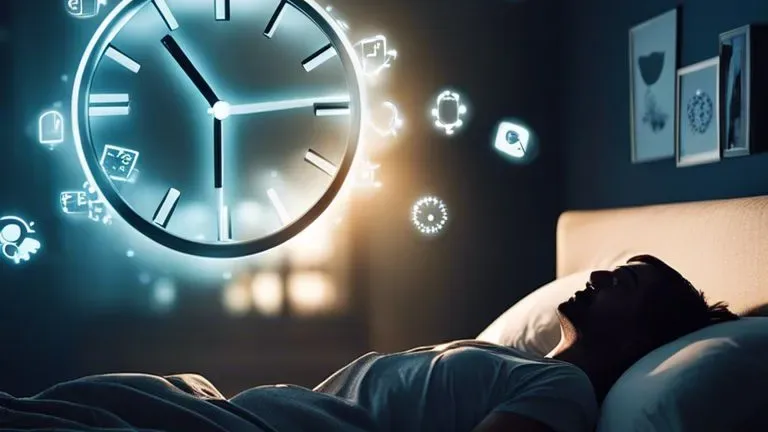How Insomnia Affects Your Life – From Mental Health to Daily Functioning
It’s estimated that 1 in 3 adults suffer from occasional insomnia, a sleep disorder that can have devastating effects on both mental health and daily functioning.
From increased risks of anxiety and depression to impaired memory and reduced productivity, the impact of insomnia on our lives cannot be overstated.
In this blog post, we will research into the various ways in which insomnia can negatively influence our overall wellbeing.
Understanding Insomnia
While many people experience occasional sleepless nights, insomnia goes beyond just having trouble falling asleep.
It is a sleep disorder that can have a significant impact on your daily life, affecting your mental and physical health, productivity, and general well-being.
Definition and Types
Insomnia is characterized by difficulty falling asleep, staying asleep, or waking up too early and not being able to fall back asleep.
There are two main types of insomnia: acute insomnia, which lasts for a short period of time, and chronic insomnia, which occurs at least three nights a week for three months or more.
| Types of Insomnia | Description |
| Acute Insomnia | Short-term difficulty sleeping due to stress or life events |
| Chronic Insomnia | Persistent difficulty sleeping that lasts for months |
| Onset Insomnia | Difficulty falling asleep at the beginning of the night |
| Maintenance Insomnia | Difficulty staying asleep throughout the night |
| Comorbid Insomnia | Insomnia that occurs with other medical or mental health conditions |
Assume that if left untreated, chronic insomnia can lead to serious health complications such as increased risk for heart disease, diabetes, and depression.
Causes of Insomnia
Insomnia can be caused by various factors, including stress, anxiety, depression, poor sleep habits, certain medications, caffeine, and underlying health conditions.
A thorough evaluation by a healthcare provider is vital to determine the underlying cause of insomnia and develop an appropriate treatment plan.
Insomnia and Mental Health
Insomnia’s Impact on Psychological Well-being
With the lack of quality sleep that insomnia brings, individuals often experience a range of psychological challenges.
Sleep deprivation can lead to irritability, mood swings, difficulty concentrating, and heightened stress levels.
These symptoms can exacerbate existing mental health issues and make it harder for individuals to cope with everyday stressors.
Connection Between Insomnia and Mental Disorders
Mental health professionals have long recognized the connection between insomnia and various mental disorders.
Studies have shown that insomnia increases the risk of developing mental health conditions such as depression, anxiety, and bipolar disorder.
The relationship between insomnia and mental disorders is cyclical, as poor sleep can worsen mental health symptoms, leading to a vicious cycle that is challenging to break without proper treatment.
Impact of Insomnia on Mental Health
Untreated insomnia can have a significant impact on mental health, leading to an increased risk of developing psychiatric disorders.
Individuals with chronic insomnia are more likely to experience symptoms of depression and anxiety, and the risk of suicide is also higher among those with severe sleep disturbances.
Insomnia’s Effects on Daily Functioning
Performance at Work or School
Assuming you are grappling with insomnia, your performance at work or school may suffer significantly.
Lack of sufficient rest can lead to difficulty concentrating, making decisions, and completing tasks efficiently.
You may experience memory lapses, increased errors, and a decline in productivity.
Chronic insomnia can also affect your mood, making it challenging to interact positively with colleagues or classmates.
Social and Family Life Disruptions
Functioning in your social and family life can be greatly disrupted by insomnia.
The constant fatigue and irritability that come with inadequate sleep can strain relationships with loved ones.
You may find it challenging to engage in social activities, outings, or even simple family gatherings. Social withdrawal and reduced communication may become noticeable, impacting your connections with others.
Coping Strategies and Treatments
Lifestyle Changes and Behavioral Therapy
For individuals struggling with insomnia, adopting lifestyle changes and utilizing behavioral therapy techniques can be instrumental in managing sleep difficulties.
Making adjustments such as establishing a consistent bedtime routine, limiting caffeine and screen time before bed, and creating a relaxing sleep environment can help improve sleep quality.
Behavioral therapy, such as cognitive behavioral therapy for insomnia (CBT-I), can address negative thought patterns and behaviors that contribute to insomnia, fostering healthier sleep habits.
Medical Interventions for Insomnia
With the guidance of a healthcare provider, medical interventions may be considered for individuals with severe or chronic insomnia.
These interventions can include prescription medications that help regulate sleep patterns or address underlying issues contributing to sleep disturbances.
It is crucial to approach medical interventions for insomnia under the supervision of a healthcare professional to ensure effective treatment and minimize potential risks associated with medication use.
To wrap up
Insomnia can have a profound impact on various aspects of your life. From mental health to daily functioning. Persistent sleep disturbances can lead to a range of issues. These include increased stress, anxiety, and depression. It can also cause difficulty concentrating and making decisions.
It is crucial to prioritize healthy sleep habits. Also, seek help from healthcare professionals if insomnia is significantly affecting your quality of life. By addressing the underlying causes of your sleep disruptions, you can regain control over your well-being. This will help you improve your overall health and functioning.

